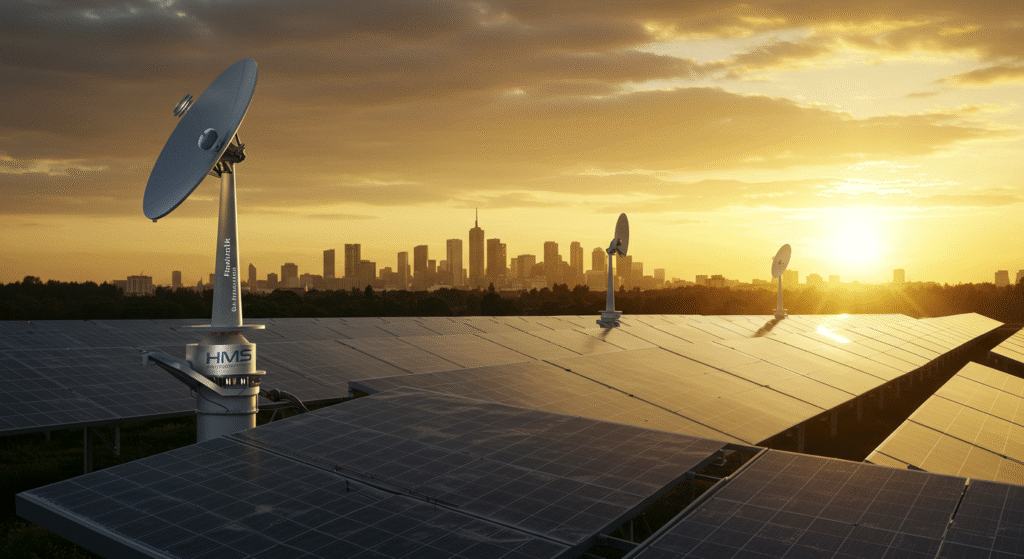The global energy landscape is changing rapidly as nations, industries, and individuals shift toward renewable energy. Solar power is at the heart of this transformation, offering clean, reliable, and cost-effective electricity. Among the many innovations in solar energy, HMS Photovoltaik has emerged as a concept representing smarter, more efficient photovoltaic systems with hybrid management and advanced monitoring capabilities.
HMS Photovoltaik is not just about generating power — it is about optimizing solar energy production, ensuring system stability, and enabling a sustainable future.
What is HMS Photovoltaik?
HMS Photovoltaik can be understood as a hybrid management system for photovoltaic installations, integrating traditional solar panels with intelligent monitoring, storage solutions, and performance optimization technologies.
The concept brings together:
-
High-efficiency photovoltaic modules for maximum energy generation.
-
Hybrid management systems (HMS) that balance solar, battery, and grid power.
-
Smart monitoring platforms to track energy production and consumption in real time.
-
Scalable solutions adaptable for households, businesses, and large-scale solar farms.
Core Features of HMS Photovoltaik
1. Advanced Monitoring
Real-time data collection and analytics ensure that every panel in the system operates at peak efficiency.
2. Hybrid Management
HMS Photovoltaik balances multiple power sources: solar panels, energy storage, and the electrical grid.
3. Energy Storage Integration
By connecting to batteries, HMS Photovoltaik allows users to store excess energy and use it during peak demand or at night.
4. Remote Accessibility
Cloud-based systems allow homeowners and businesses to monitor their solar installations from smartphones or computers.
5. Scalability
Whether for a single household or an industrial-scale solar farm, HMS Photovoltaik solutions can expand to meet diverse energy needs.
Benefits of HMS Photovoltaik
Increased Efficiency
Smart monitoring reduces energy losses by identifying underperforming panels or faults.
Energy Independence
By combining solar with storage, HMS Photovoltaik reduces reliance on the grid.
Cost Savings
Optimized solar performance and stored energy to lower electricity bills.
Environmental Impact
By maximizing renewable energy usage, HMS cuts carbon emissions.
Reliability
Hybrid systems provide backup power during outages, ensuring energy continuity.
Applications of HMS Photovoltaik
Residential Use
-
Rooftop solar panels with hybrid management.
-
Battery storage for night-time usage.
-
Remote monitoring via mobile apps.
Commercial and Industrial Use
-
Solar-powered warehouses and office complexes.
-
Energy savings for manufacturing plants.
-
Integration with EV charging stations.
Agricultural Applications
-
Solar-powered irrigation systems.
-
Energy supply for greenhouses and rural infrastructure.
Utility-Scale Solar Farms
-
Grid-connected solar parks with smart monitoring.
-
Optimized energy dispatch and storage management.
HMS Photovoltaik and Energy Transition
The transition to renewable energy requires more than installing solar panels — it needs intelligent management systems that ensure efficiency and reliability. HMS fits perfectly into this framework, supporting the global shift toward:
-
Decentralized power generation – empowering communities to produce their own energy.
-
Carbon neutrality goals – reducing dependence on fossil fuels.
-
Smart grids – connecting solar systems with AI-powered energy distribution networks.
Technical Aspects of HMS Photovoltaik
Photovoltaic Panels
The foundation of HMS is high-performance panels that convert sunlight into electricity.
Inverters
These devices transform direct current (DC) into alternating current (AC) for household and industrial use.
Hybrid Controllers
The HMS manages the flow of electricity between solar panels, batteries, and the grid.
Energy Storage
Lithium-ion or other battery technologies store excess solar energy.
Monitoring Software
AI and IoT-based platforms provide real-time data visualization and predictive maintenance alerts.
Why HMS Photovoltaik Stands Out
-
Smarter than traditional solar: Continuous monitoring ensures peak performance.
-
Resilient in all conditions: Hybrid systems guarantee backup even when sunlight is low.
-
Future-ready: Integration with EVs, smart homes, and AI-driven energy platforms.
-
User-friendly: Cloud-based apps make energy management simple for non-experts.
Challenges Facing HMS Photovoltaik
High Initial Investment
Advanced systems with storage and monitoring cost more upfront than standard solar setups.
Technical Complexity
Installing and maintaining HMS requires skilled professionals.
Battery Lifecycle
Storage units have limited lifespans and require eventual replacement.
Grid Integration
In some regions, regulations on feeding solar power into the grid remain restrictive.
Future of HMS Photovoltaik
AI and Machine Learning
Predictive analytics will help forecast energy demand and optimize solar usage.
Blockchain Technology
Decentralized energy trading platforms could integrate with HMS.
Next-Generation Storage
Solid-state batteries and other breakthroughs will improve efficiency and longevity.
Wider Adoption
As costs decrease, Photovoltaik will become accessible to more households and businesses.
Practical Tips for Implementing HMS Photovoltaik
-
Assess Your Needs – Calculate current energy consumption.
-
Choose the Right System Size – Oversizing or undersizing reduces efficiency.
-
Invest in Storage – Batteries maximize independence and cost savings.
-
Use Accredited Installers – Ensure safety and compliance with regulations.
-
Monitor Regularly – Take advantage of real-time analytics to optimize performance.
Conclusion
HMS Photovoltaik represents the future of solar energy systems — combining high-efficiency panels, hybrid energy management, advanced monitoring, and storage integration. By offering greater independence, reliability, and sustainability, it is reshaping how individuals, businesses, and communities harness the power of the sun.
As global energy needs evolve, Photovoltaik will remain a cornerstone of the renewable revolution, proving that smarter solar means a brighter, cleaner future for all.






